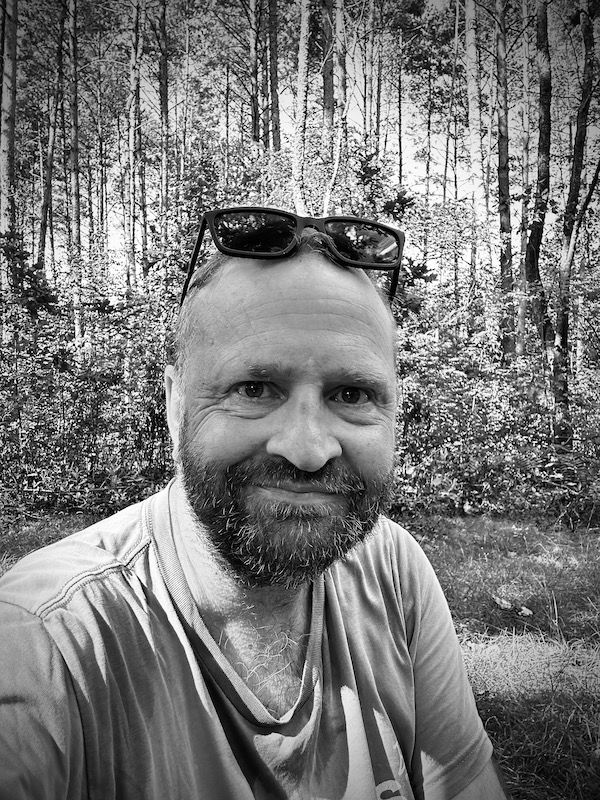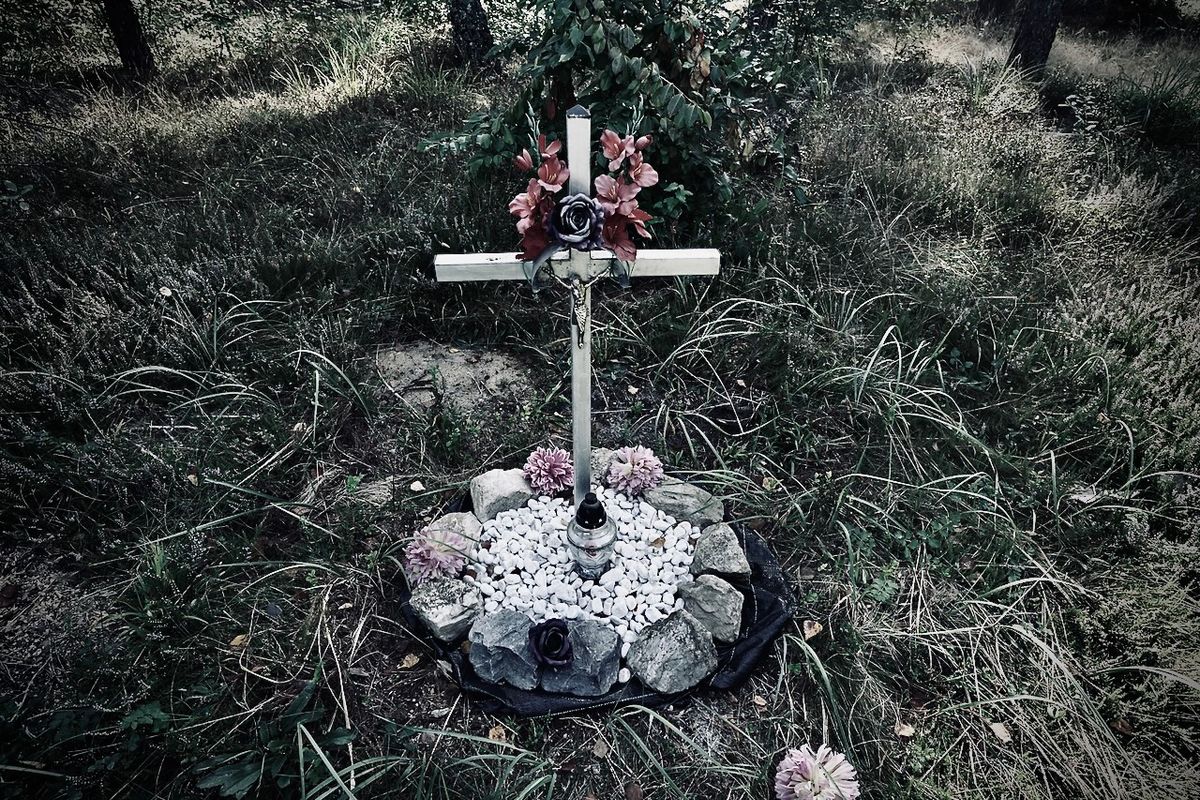In the opening scene of Claude Lanzmann's epic holocaust film "Shoah", Chełmno survivor Szymon Srebrnik stands in small clearing in the forest, looking rigid, bewildered and afraid. For it was in this forest that he and others like him burned and buried the bodies of over 170,000 innocent victims: mothers, fathers, brothers and sisters of the workers themselves.
On Testimony.
Chełmno is now infamous as the place where the Germans first used gas vans to murder their victims. Testimony remains one of the few ways we can even begin to understand what happened here.
Then, as now, it was always this quiet.
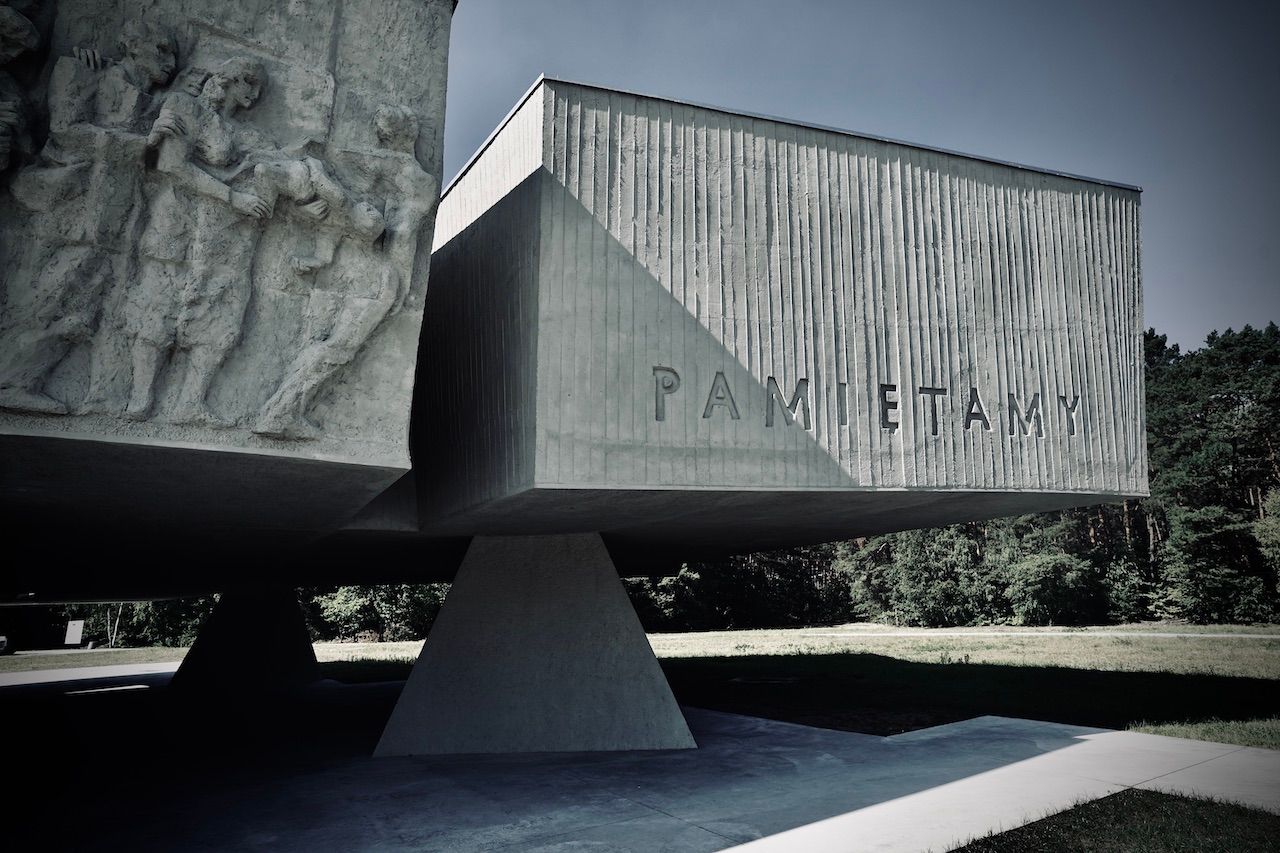
A Notebook.
An Extermination Camp in the District of Koło.
Translated from Polish by Eizenman. Poland, 10 March 1945.
The Anti-fascist Jewish Committee
To comrade Epstein:
I deliver to your hands hereby, a notebook which was translated from Polish, and in it personal notes which were written by prisoners in the death camp in Kolo district. One of the prisoners gave the notebook to a Polish farmer who kept it until the arrival of the Red Army to the Kolo district.enclosed 17 pages.The deputy of the 7th main political directorateof the workers and farmers in the red Army.
W. Spojekow
10 March 1945
8204
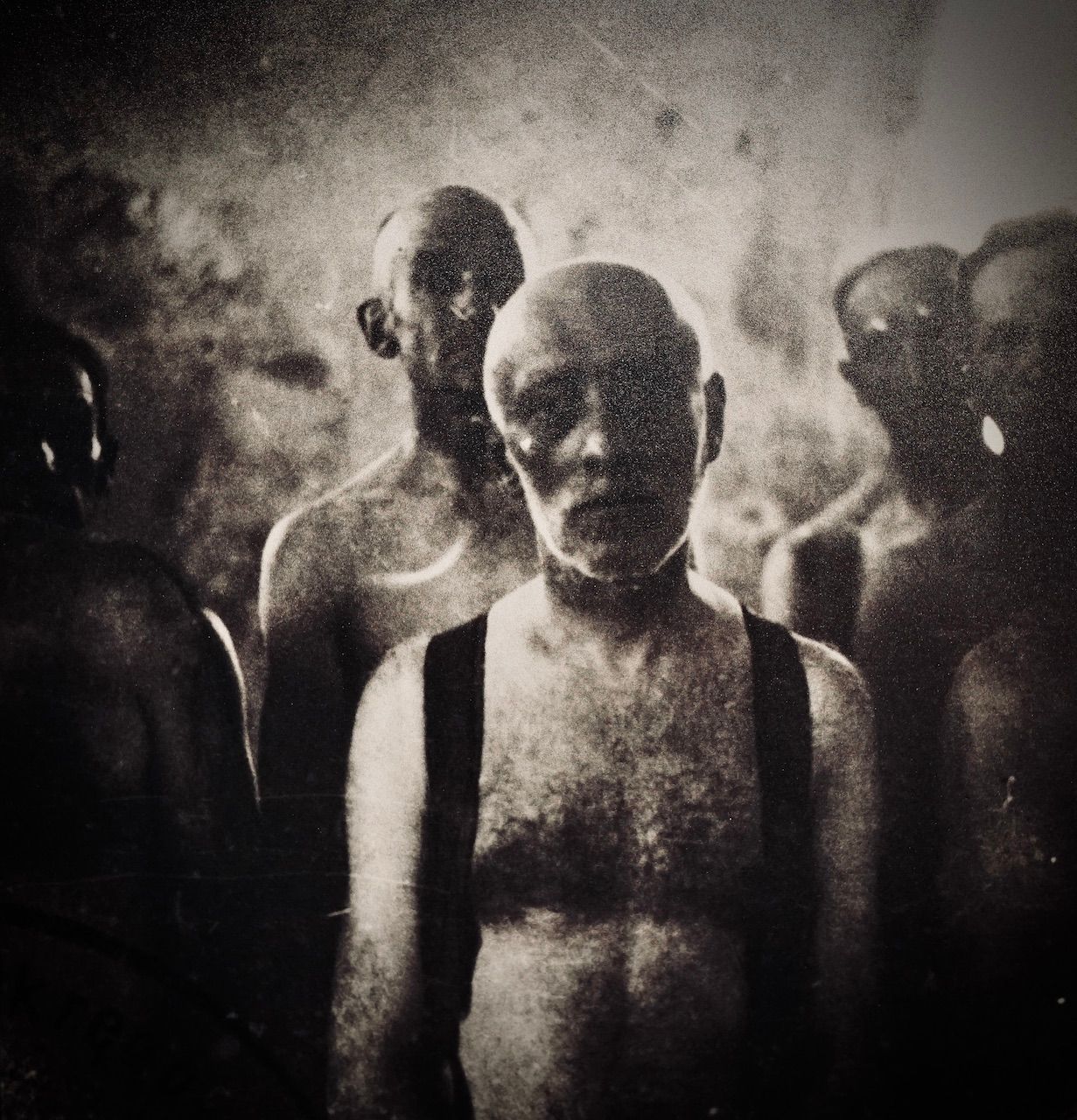
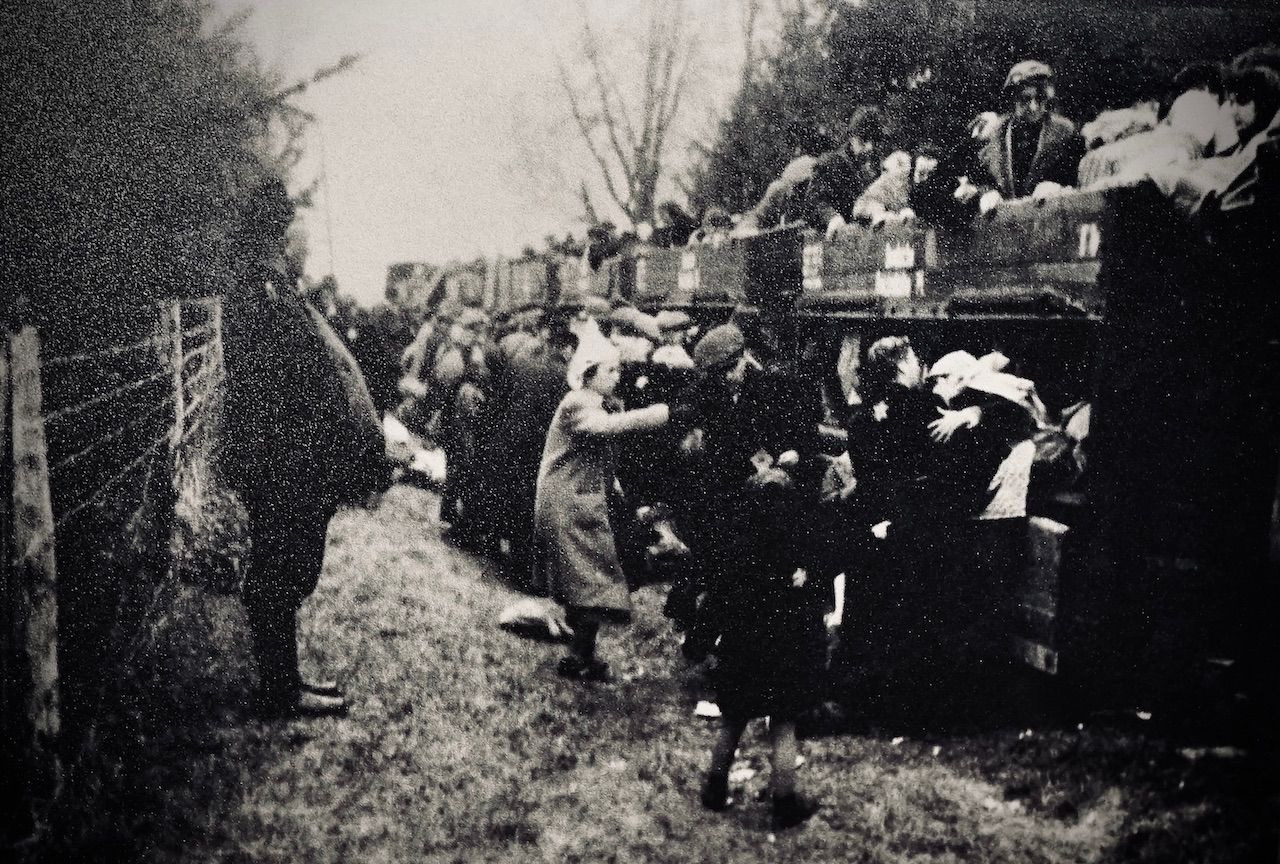
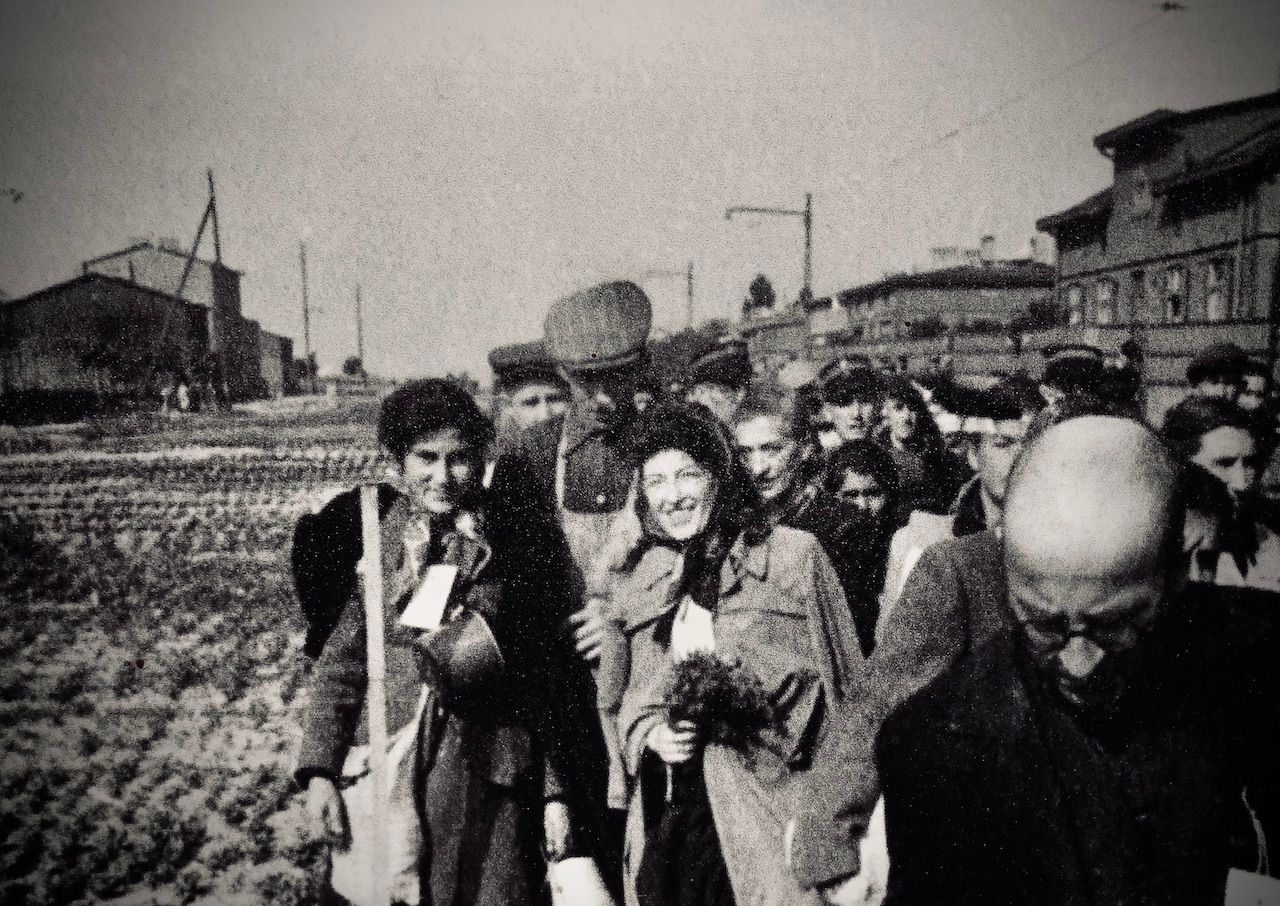
Prisoners | En route | Aktion
On Letters Home.
[Victim Testimony]
All those who were programmed to exit for work, the Germans rounded up in the building of the church and left them all through the night.
In the morning, the Gestapo men entered the church and told the people to get out to the street, in groups, where they were all loaded onto trunks. After a ride to the wood, to a place where there was barracks, they separated the men, women and children and told them to get off their clothing.
Imagine this. They told these men that they are going to have a bath. With machine guns and whips they forced them to enter a big truck and the moment that everyone was on, they shut the cargo cell hermetically.
It was dark and suffocating inside. All these people were gassed, strangled by the gas which was blown inside. And at the time when people were suffocated inside by gas, the lorry rode to the two crematoria in the same wood, not far from the barracks. All the bodies were thrown out into those under ground crematoria which were made of cement and burnt to ashes.
While these people were in the barracks, they were forced to write postcards to the ghetto, and say that their situation is well, they have good work, enough food etc.
Every family who received this postcard was very happy to know that the father, brother or son succeeded so well. While the postcard was received, they didn't have the slightest idea that their relatives had perished already long ago without leaving any traces.
Thus worked the propaganda in the ghetto, and everyone wished to be sent to work, to get also better living conditions in their new working place, instead of the hunger which prevailed in the ghetto.
Nobody knew that this good work was death execution, operated in a beastly manner. All this we understood within a few minutes, while we sat with our friends over the sewing machines. The windows of our room faced the yard, and we could see from them the church' the road and all the transports which came to us.
Trunks full of load taken from the victims stopped in our camp' and Jewish workers, specially selected for the task, were engaged in sorting them out. Often it happened that such worker run into a bag which belonged to his father, his mother, his brother or sister or another relative.
But what could we do?
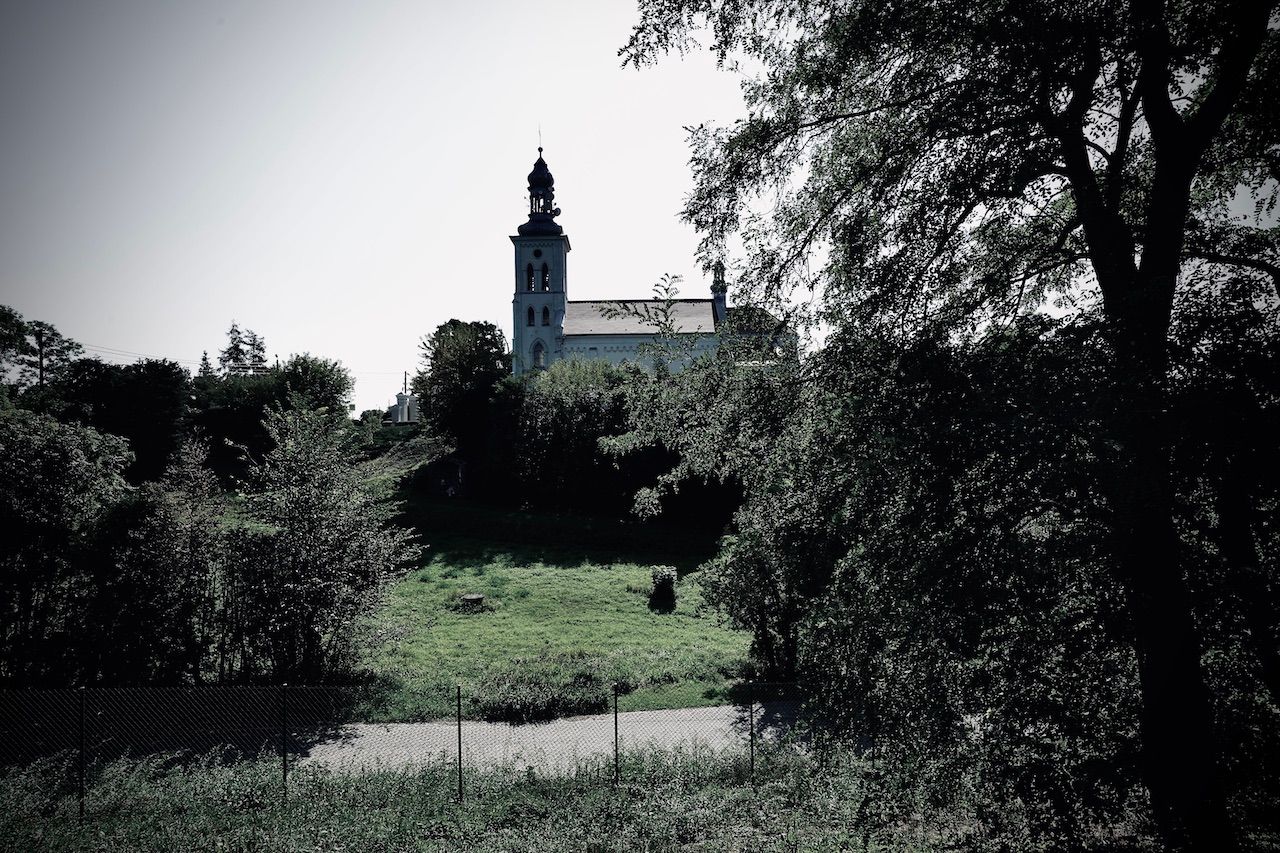
On Transport.
21 September 1944.
This writing is made by Berek, son to the family Sietenfeld, who lived in the Ghetto in 82 Czegelna street.
On May 15th. 1944 I was transferred from the Ghetto to what was called "labour camp", but to be accurate, it is an extermination camp. In the Ghetto, I left my mother, sister and a brother.In the beginning of the war they run away to Russia, three brothers and a sister, while me and my family stayed behind in the ghetto.
After two years of life in the ghetto, my father died of starvation. My second brother and his wife wanted to run away also and be saved, but they did not succeed and were compelled to return to the ghetto. At the meantime they were already transported, you know very well where to, and I was left alone with my family members, my beloved relatives.
My heart is torn off me when I see what is going on here. I am only 16 years old. I was 11 years old only when the war broke out. In the five years during which I lived in the ghetto, I suffered so much and could not help my dear parents. How painful it was to see your own father dying of starvation in front of your eyes and you cannot help him. Imagine what I suffered through!
Now when I see a few thousands Jews and Poles, innocent of any crime, die in such horrible manner, my heart aches and my only desire is to revenge the revenge of them all. But I am only 16, chained in iron chains like a criminal, surrounded by machine-guns, and what can I do?
Tell my family what happened to me, this is my last request before I die. I am in a camp near Oniow, not far from the cities of Kolo and Konin.
I finished to write, and I ask all free human beings and from the armies who enter this region to revenge for the truth which I hereby told and revenge the blood of all the innocent people who were so brutally murdered, because I myself cannot do anything, and God shall reward you.
Berek Sietenfeld
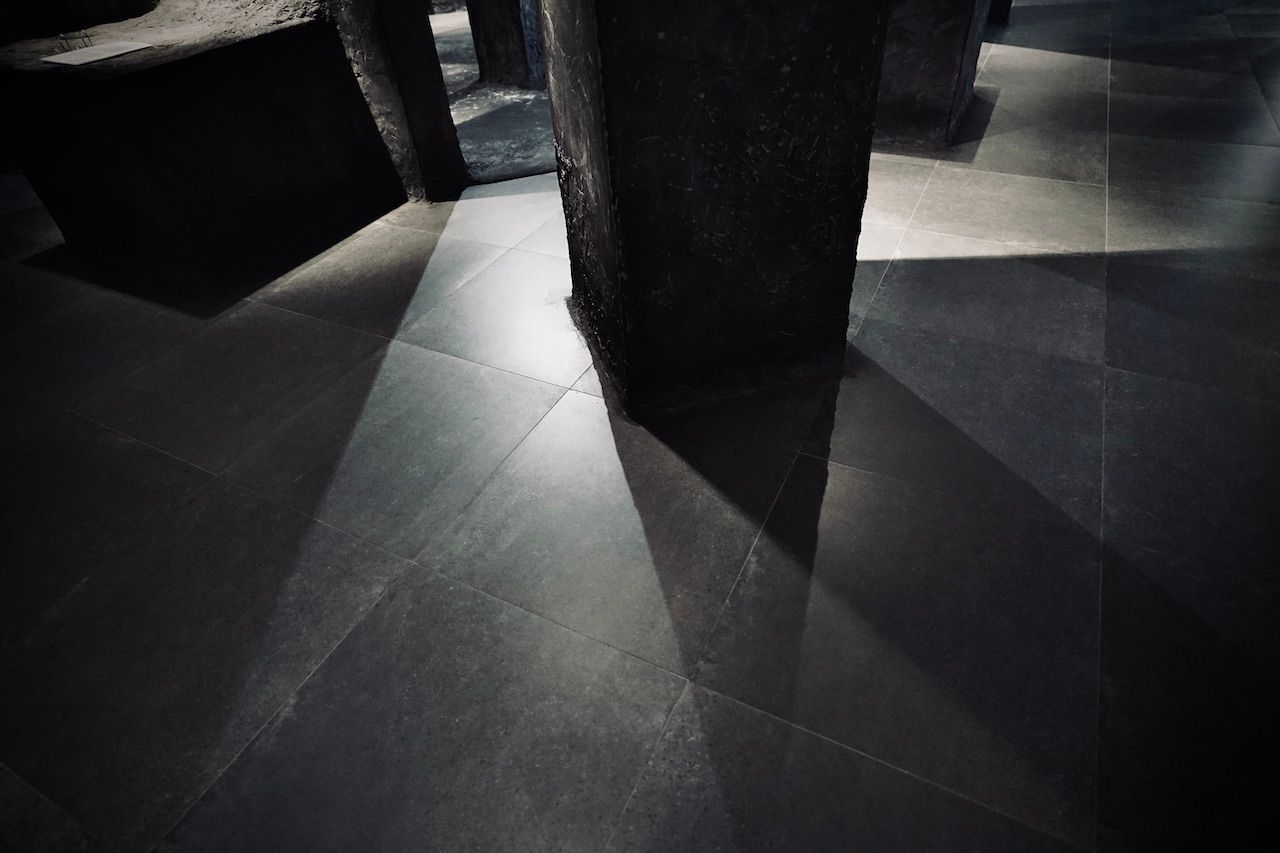
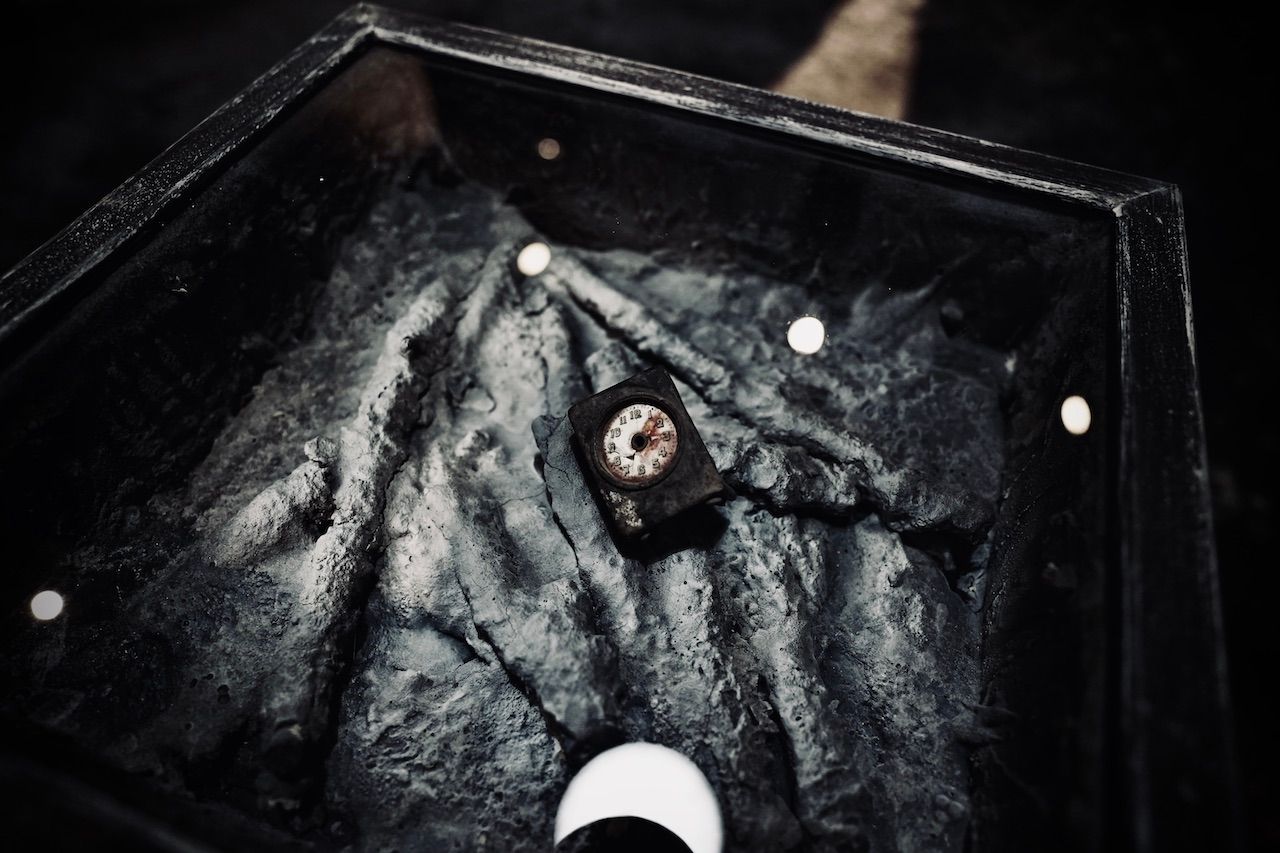
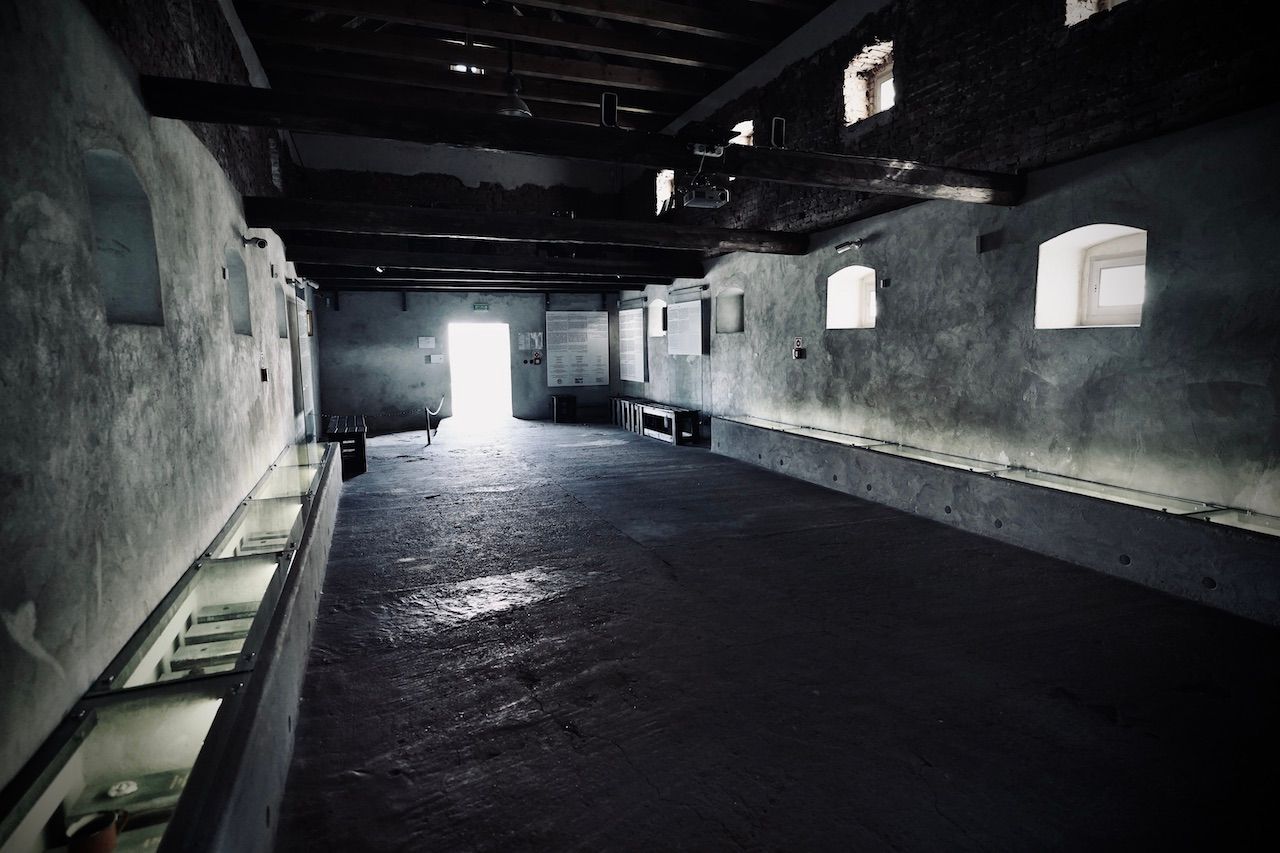
Museum 2023
On Children.
In the camp I work as a tailor and usually I get along well, because I eat, but any food I take to my mouth is like poison to me, because this is nothing but a death camp.
Two years ago they brought here all the children from the ghetto of Lodz, they gassed them and than burnt down their bodies. What do you have to say about this? I really found the traces of my child.
A few weeks ago they rounded up all the people of the Ghetto and transported them, as they always described it to work. I was left all alone, without my wife and without my children. They chained me up in iron chains like a criminal. I have already suffered in the past, and have to suffer also now, because I am Jewish.
"Why" I ask? What wrong did I do, what did my wife do, and my innocent baby who died such a cruel death.
And you who live in freedom, can you watch it without response? Nobody answered me. No one can give any advice. Day and night I am looking for a solution, wearing my mind to find an outlet.
...
On Deceit.
Now I wish I would have been a bird, and fly from here to a better world and tell the world all what is going on here, and tell them what they have to do. While in beautiful countries parties are taking place, wine, champagne and whisky is poured from bottles and lamps are giving clear soft light, in the same time, petrol is poured into the furnaces, lumber is thrown to enlarge the fire, so that human beings, among them our relatives, will burn better.
Israel Ziegelman
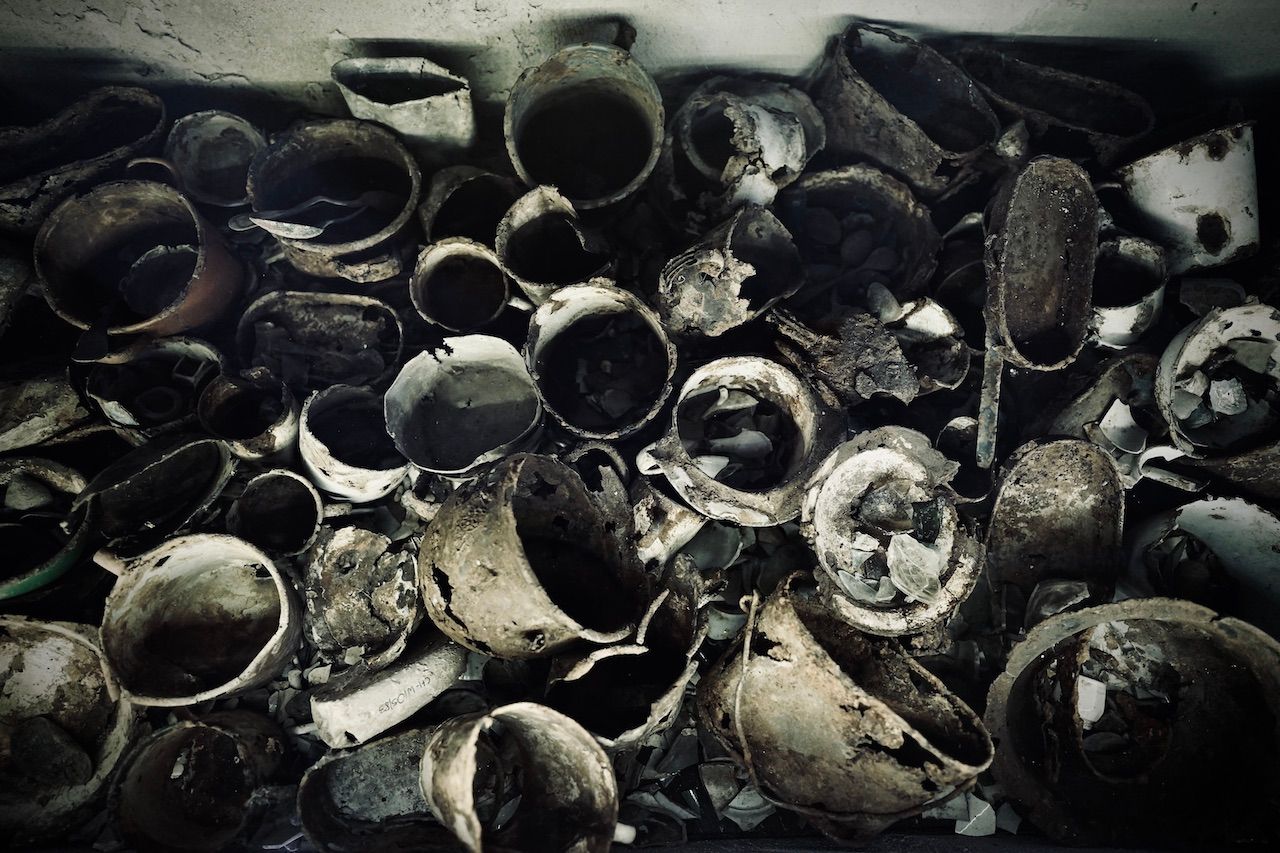
Mordechai Zurawski, from Lódżka street number 63 from Wloclawek, is writing this.
All my family was transported from Wolcławek.
Me, my father and brother were sent to a camp in the city of Poznan. After two years, we were transferred to ghetto Lodz, while my father and brother, who were very weak, because of the work in the camp, were sent to "RUCKZUG", meaning, extermination camp, with other 7,000 human beings.
I was selected by the commander of the camp and since than I work here. All the other people from my transport were exterminated, all of them;
The habitants of the ghetto really believed they were going to a place of work, and there, their situation will improve.
Now I was left alone and I wait to the day when I go to heaven. One favour I ask of you, dear people: tell my sisters, my brother and two brothers-in-law- who live in Russia, what was my fate.
The names of the sisters and brother are: Zurawski from Wlocławek, 36 Lódżka street. My brother-in-law are called Noyman Szaja, Weintraub Jacub from Wlocławek.
Mordechai Zurawski
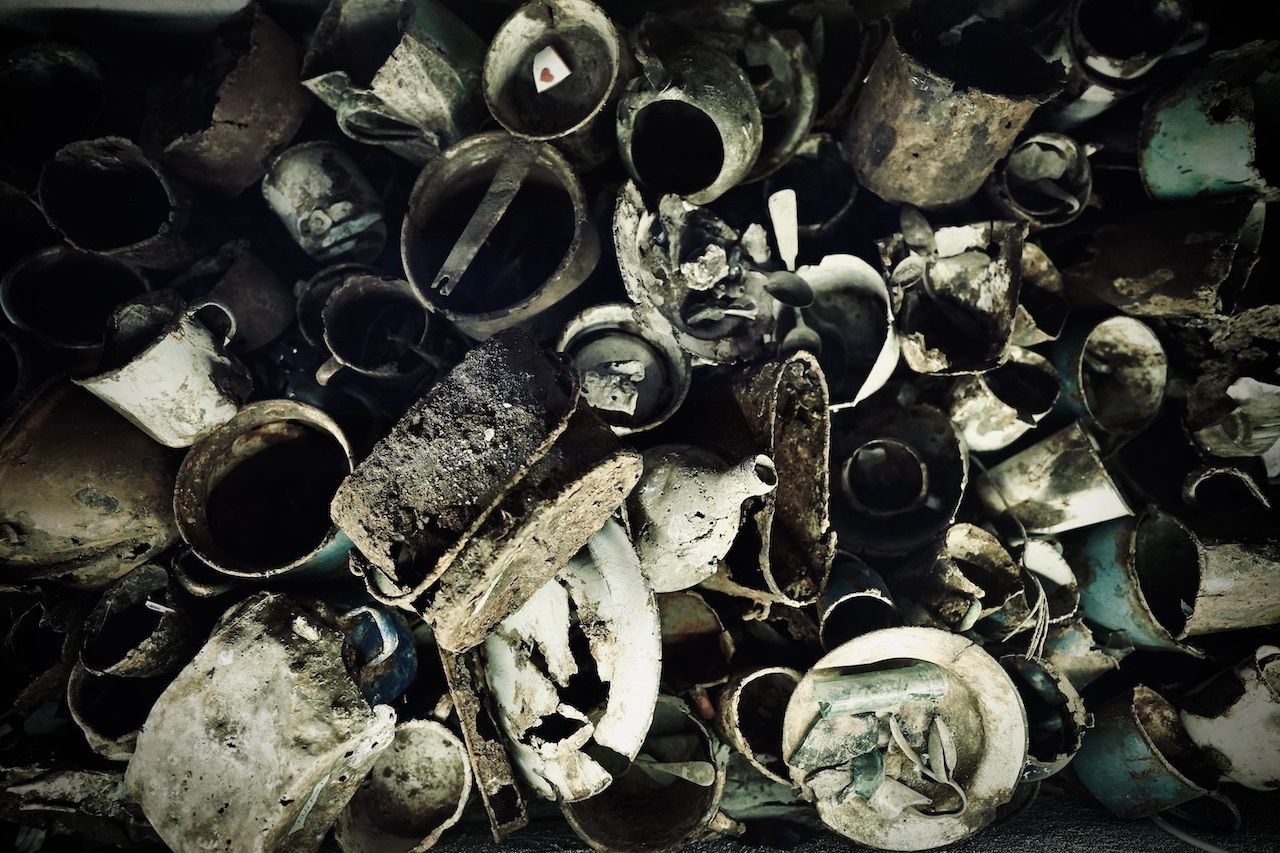
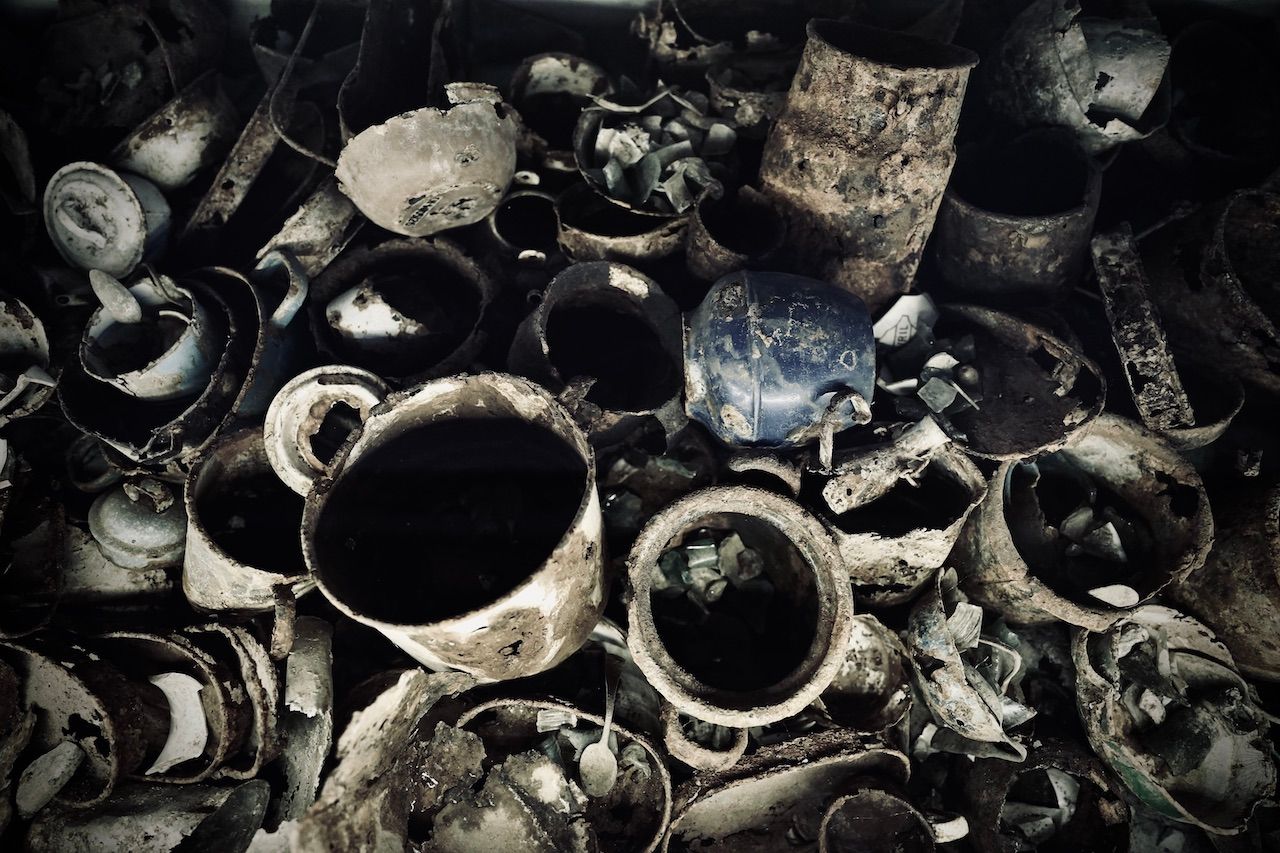
Belongings
On Revenge.
I wish to finish my tragic story, since my nerves are cracking down already.
Today, 9 January, and I simply cannot believe we stayed alive so long. This camp is being liquidated and we were left alone.
I met some Polish women who worked in the trenches. They told us that in this freezing weather they sleep in the barn, and not a single day pass, without one of them being frozen to death.
So very soon we shall all be exterminated.
If you meet on the road Germans, even the shadow of their shadow, erase them from this earth, as they did to us.
In the name of 74 comrades I plead you, you who survived, to revenge our revenge and the revenge of our wives and children, and all the innocent Jews who were murdered in the most cruel ways.
Kill and burn their wives and children, as they did to ours. Again I beg you, in the last time, fulfil our request, because it is our last request before our death.
Israel Ziegelman
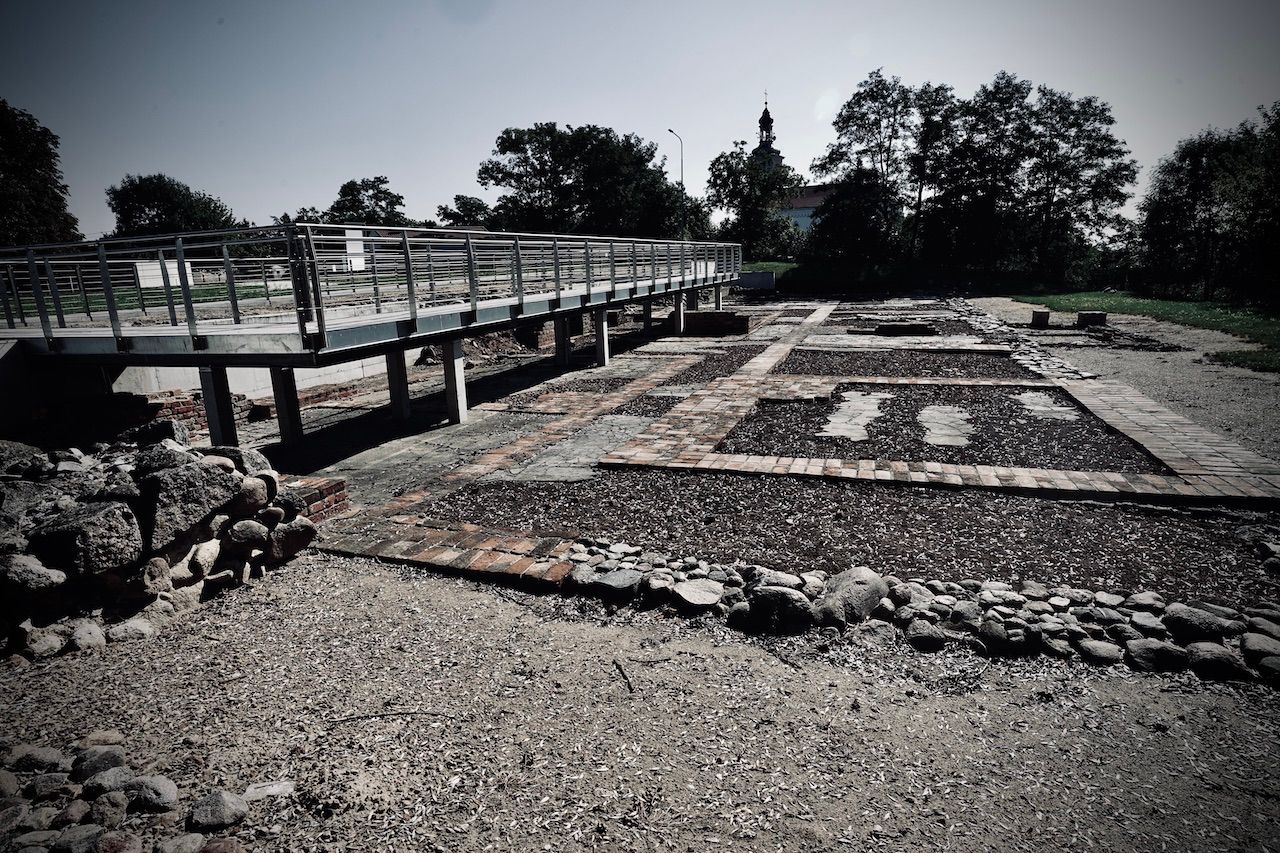
And while they threw the bodies to the crematoria, Finkelstein, a Jew from Pabianice was bitten by his sister, who did not die from the gas.
She screamed: "My brother! I am still alive! and my own brother throws me to the fire!!!"
Unknown
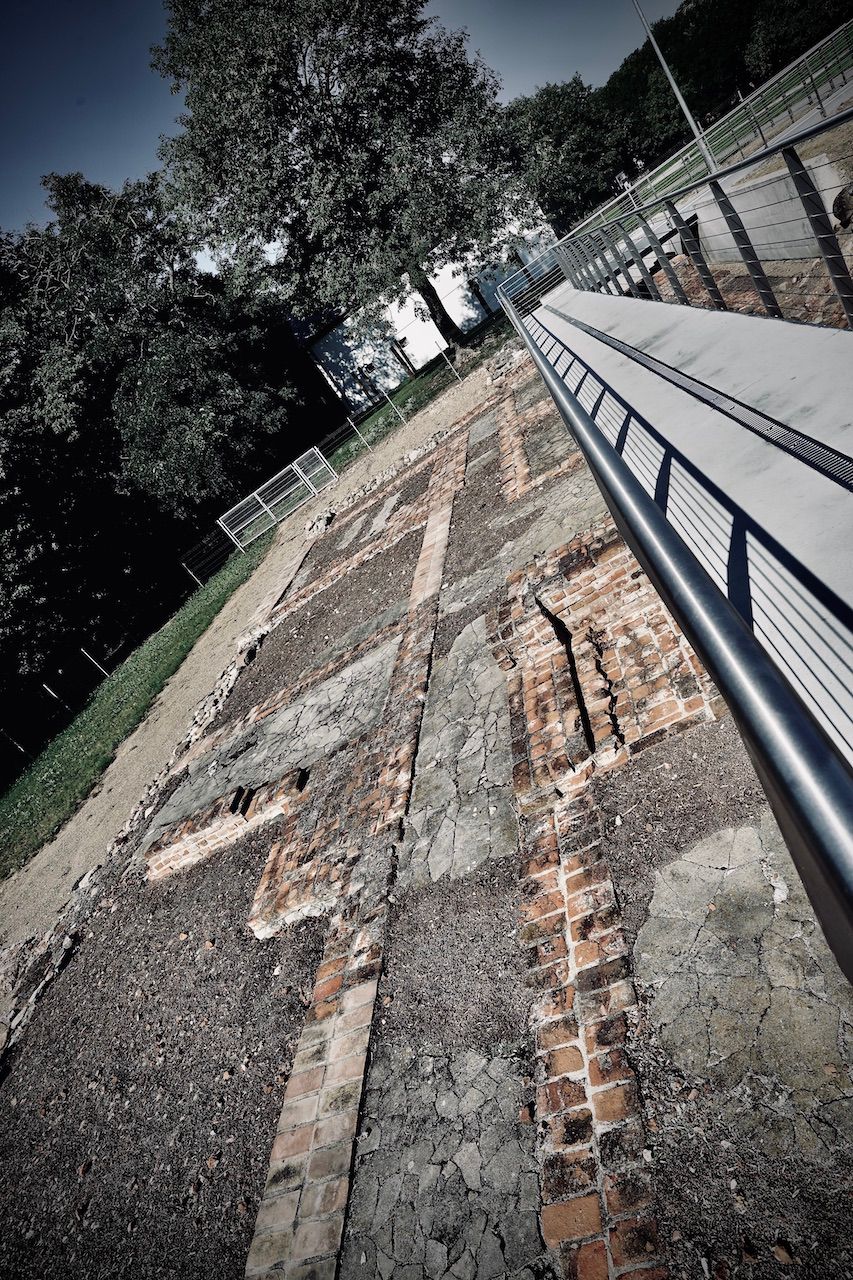
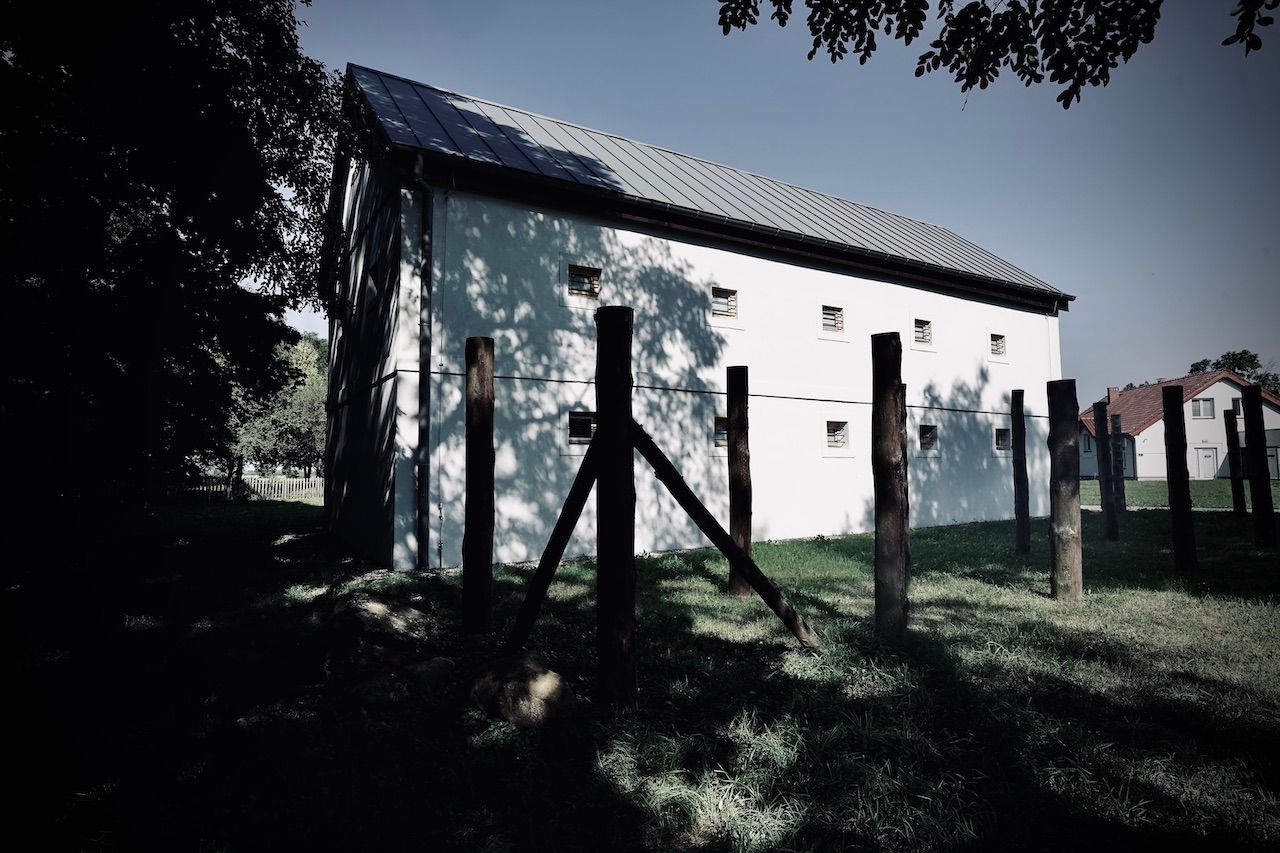
Mansion House & Granary 2023
On Ceremony.
Afterwards, first thing they chained us in iron chains.
The commander made a speech, and said that this is a labor camp, and anyone who will not work or evaded work will be shot dead.
Every word that the commander said pierced our chest, like true bullets.
He said that we have to work, in order to help the Germans win the war, and that the Jews wanted the war.
Imagine what we felt than: all these "death heads" surrounding us and a chain of policemen guard watch us. After this ceremony we were led to a room in the first floor of a small house, and small windows in it, covered by curtains, without light, without a key to the door and the door itself locked by a bar from the outside.
In the room there have been eight tailors, five cobblers, one boots maker, two carpenters and four young men who helped in the kitchen.
Unknown
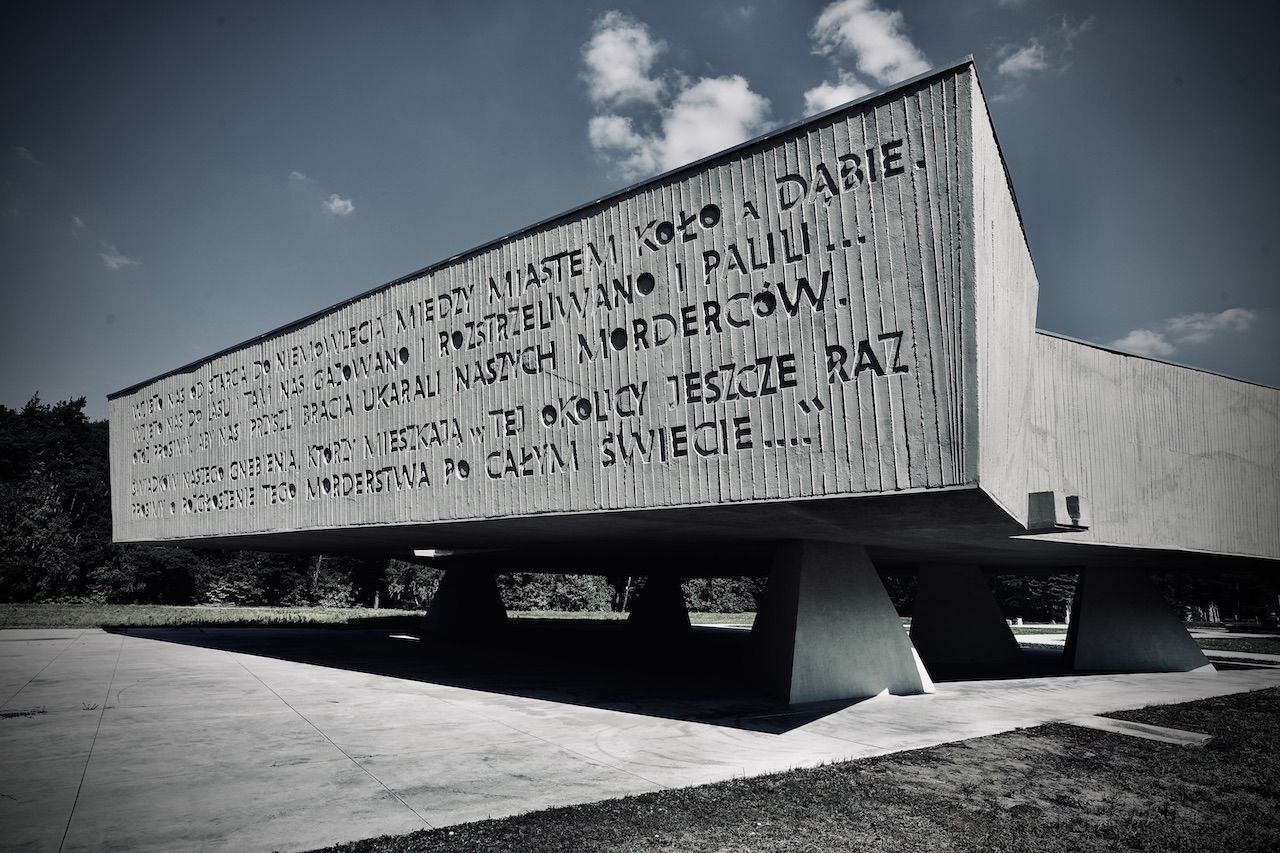
On Tragedy.
On 13 August, in the middle of the day, arrived a lorry full of people. We did not know who they were. After a short break they were all driven to the wood and only when the trunk returned with their personal belongings we realized they were our wives and children.
Imagine this tragedy!
The day of September 1st, the day when they burnt our families, we shall remember all our lives. The same fate awaits for us, but when this terrible moment will arrive, we don't know.
We live in the hope that God will let us stay alive until the moment when we shall be able to revenge the revenge of all our beloved souls, torn off our hearts.
We ask any man to revenge, because at the meantime we cannot do anything, and we wait for liberation.
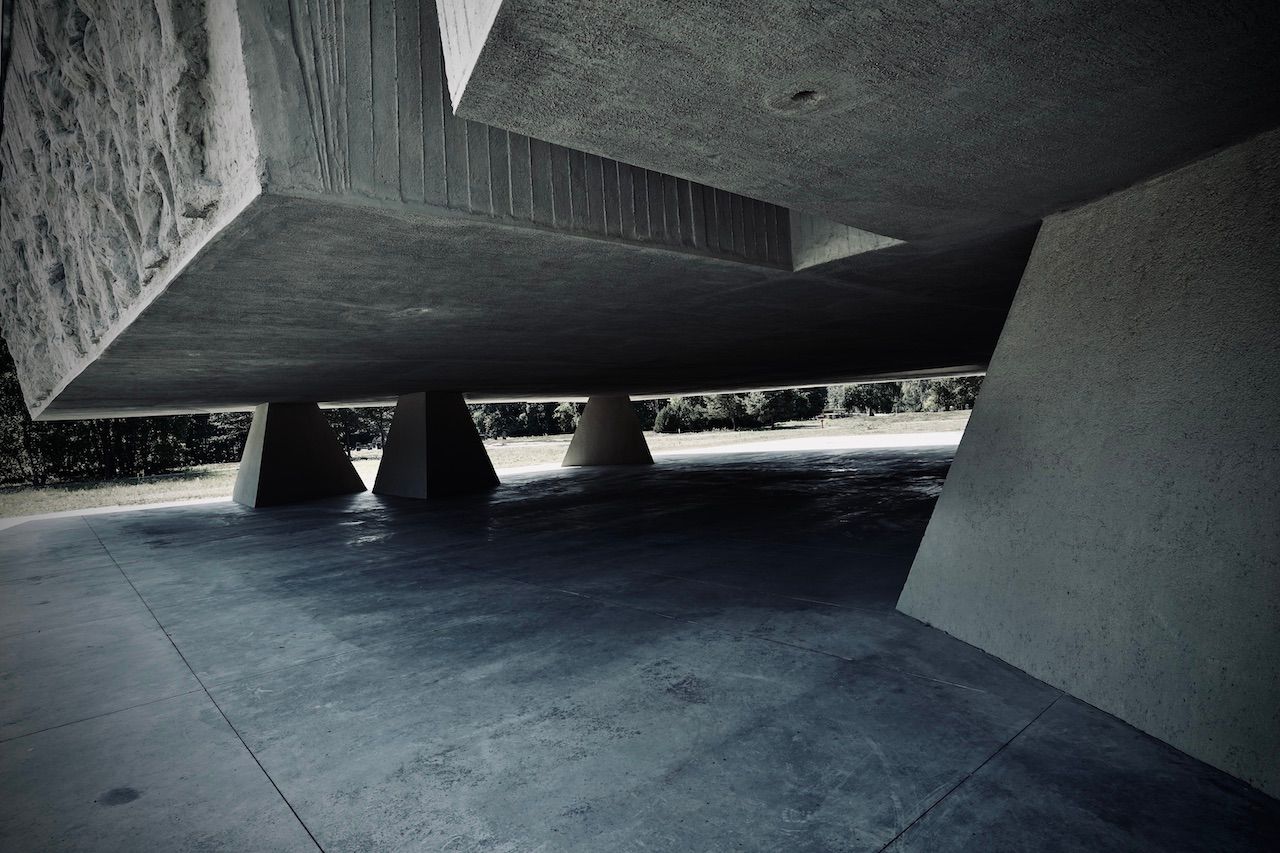
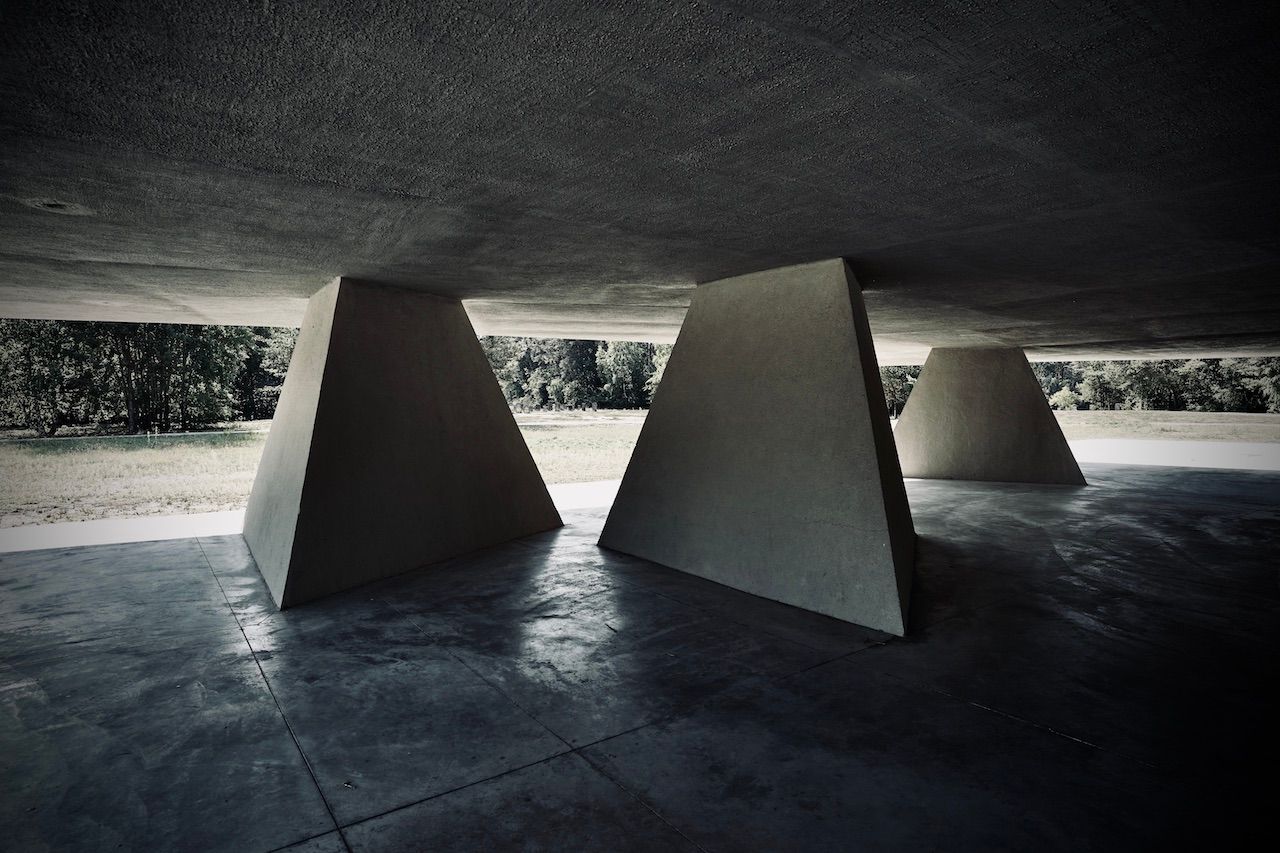
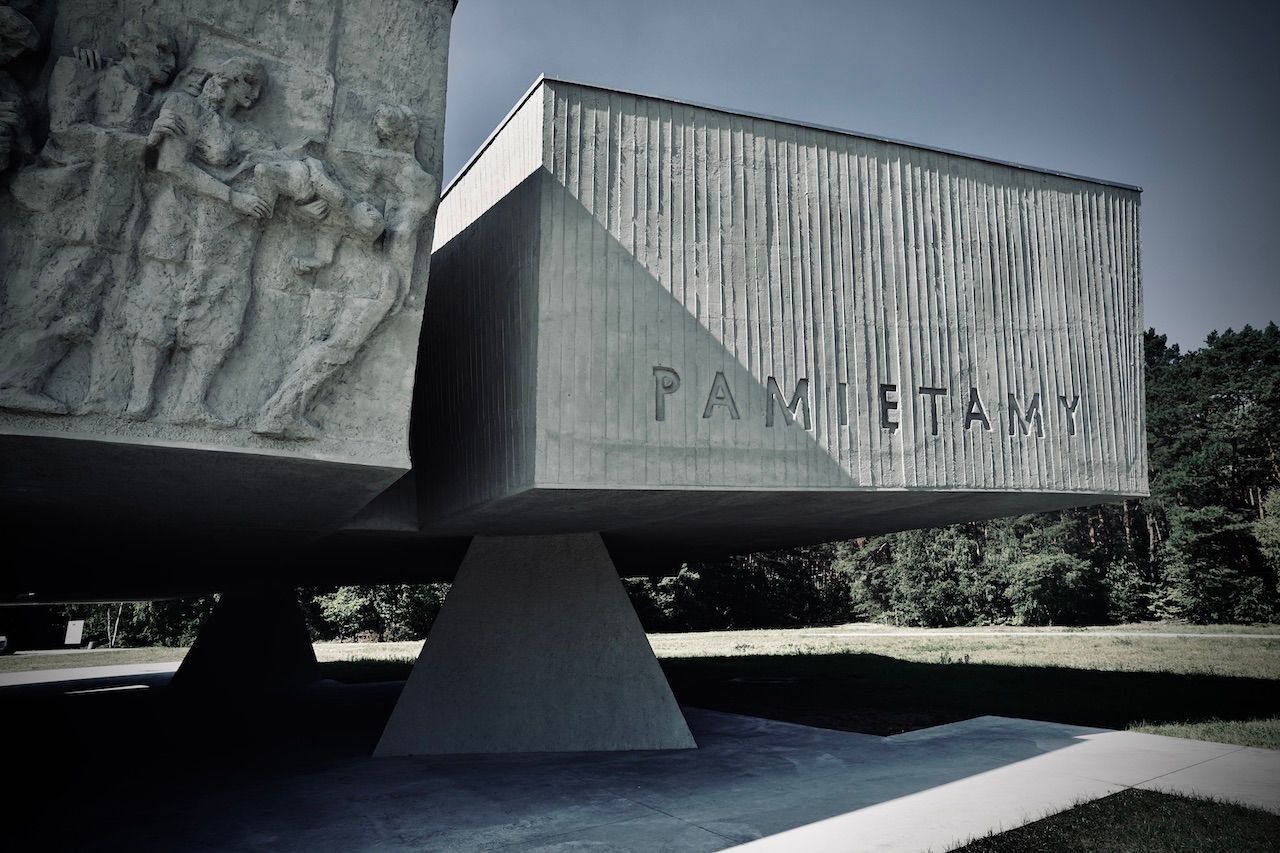
Rzuchow
If someone from the outside world would have seen us, he would have said that he never saw people like us, that our nerves are made of steel that with our own hands we throw to the burning crematoria our fathers, mothers, sisters and brothers, our children are torn off our hearts, our beloved wives, and we watch all this with indifference, as if it does not concern us.
What can be said about us?
Again and again we ask ourselves the same questions but we do not have an answer.
A.Kolton
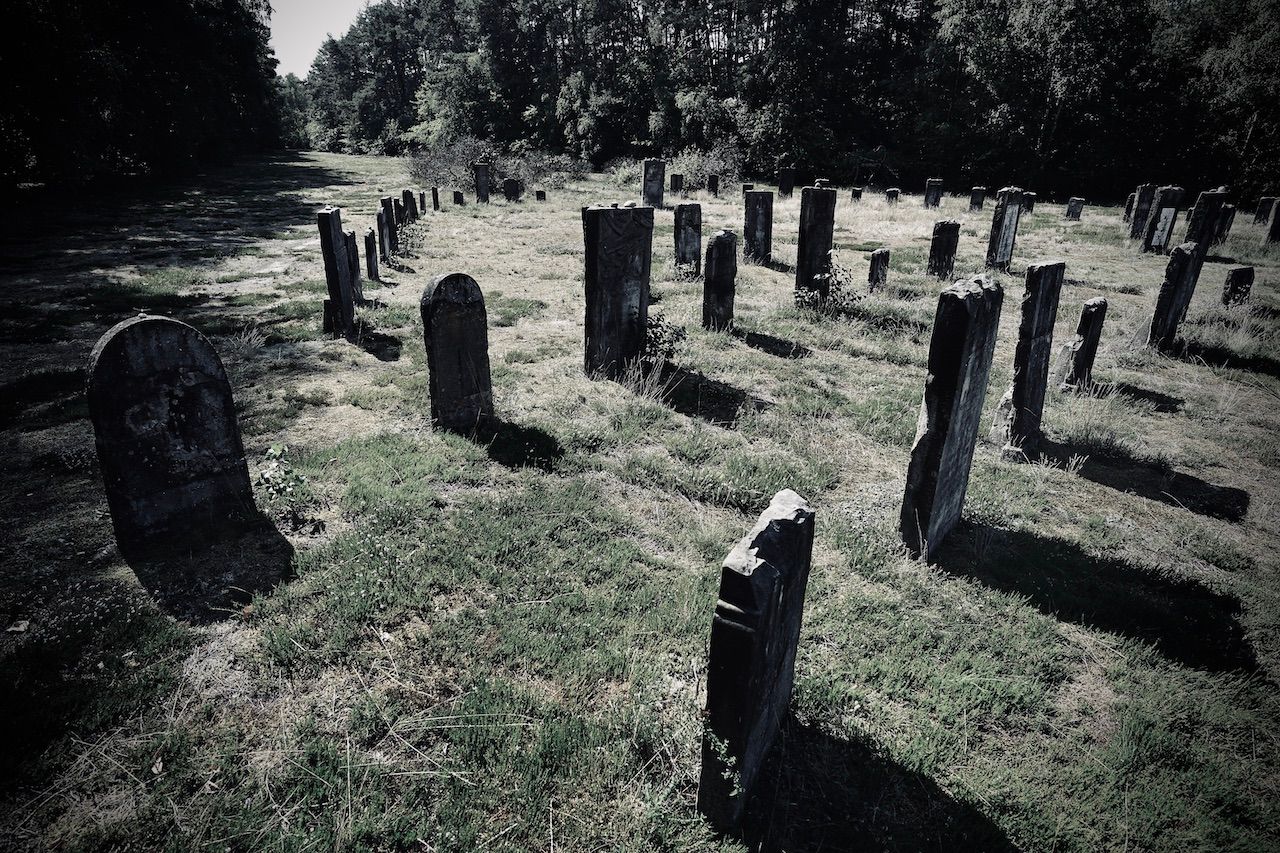
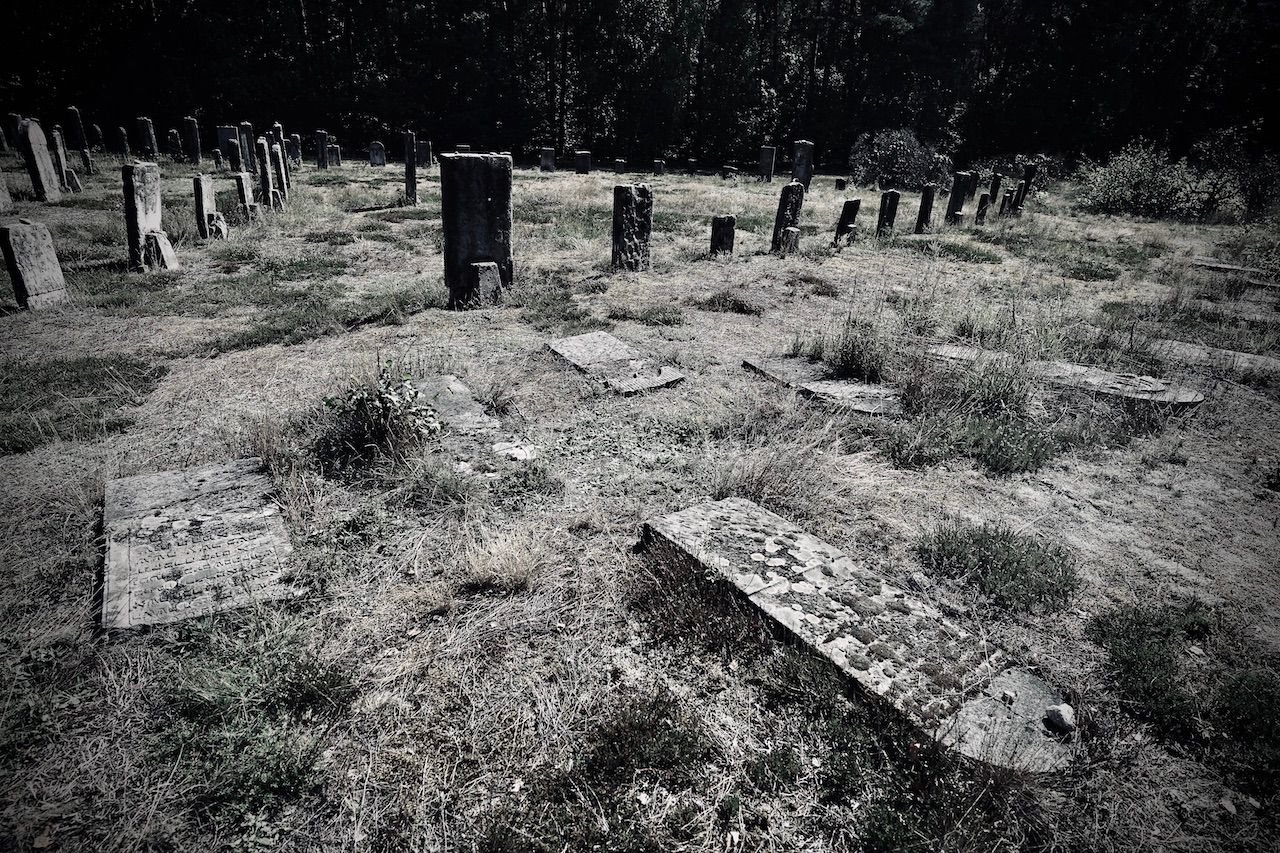
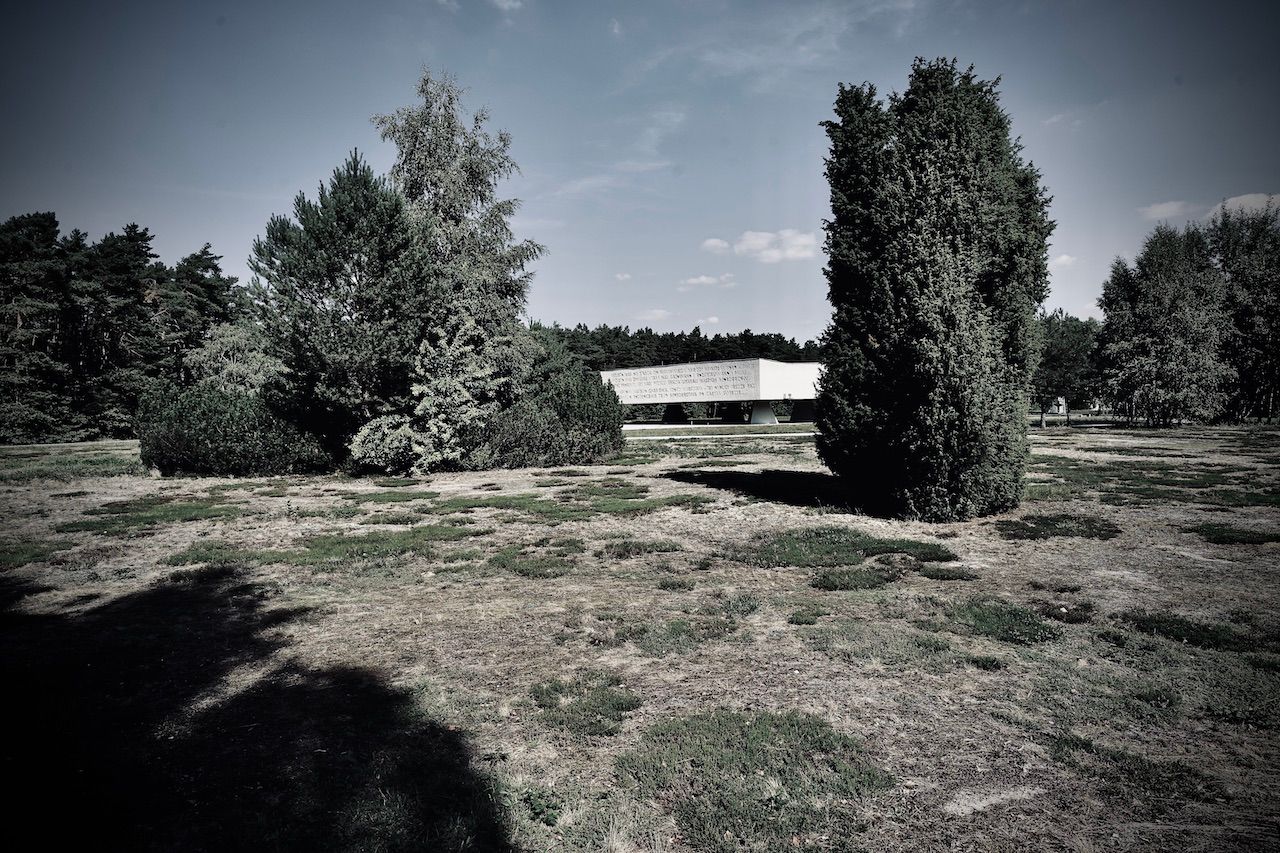
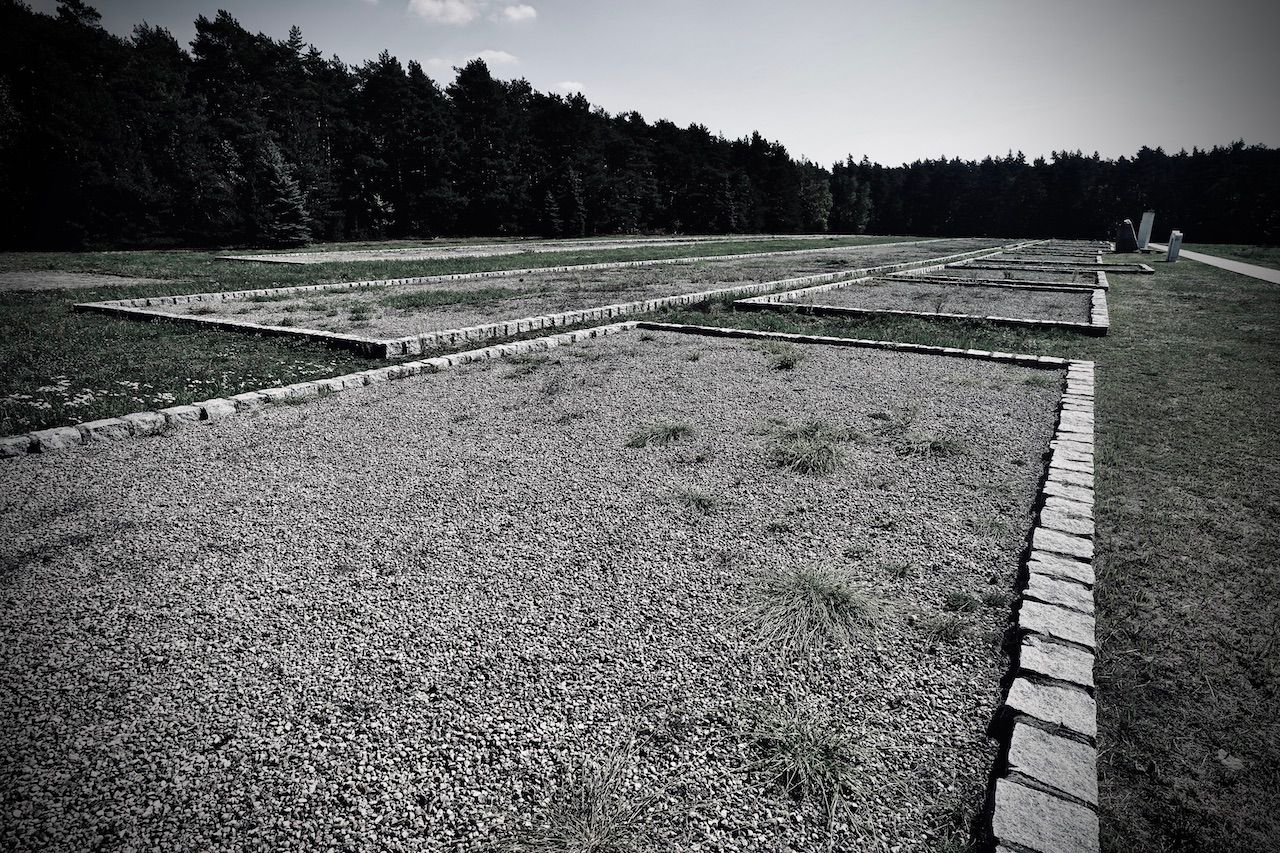
Rzuchow
On Family.
Dear friends, Hillel Belchatowski and Mendel Belchatowski!
You probably wish to know where your family members were murdered, on 24 September 1944.
Me, A. Kolton, was expelled from Lódż to this camp only in 1944.
Every day about 1000 people were brought here from Bełchatów, and were locked in a church 12 km from Koło.
From there, they were taken to the forests, poisoned by gas and their bodies were burned.
Now me too, am waiting for my death.
A. Kolton
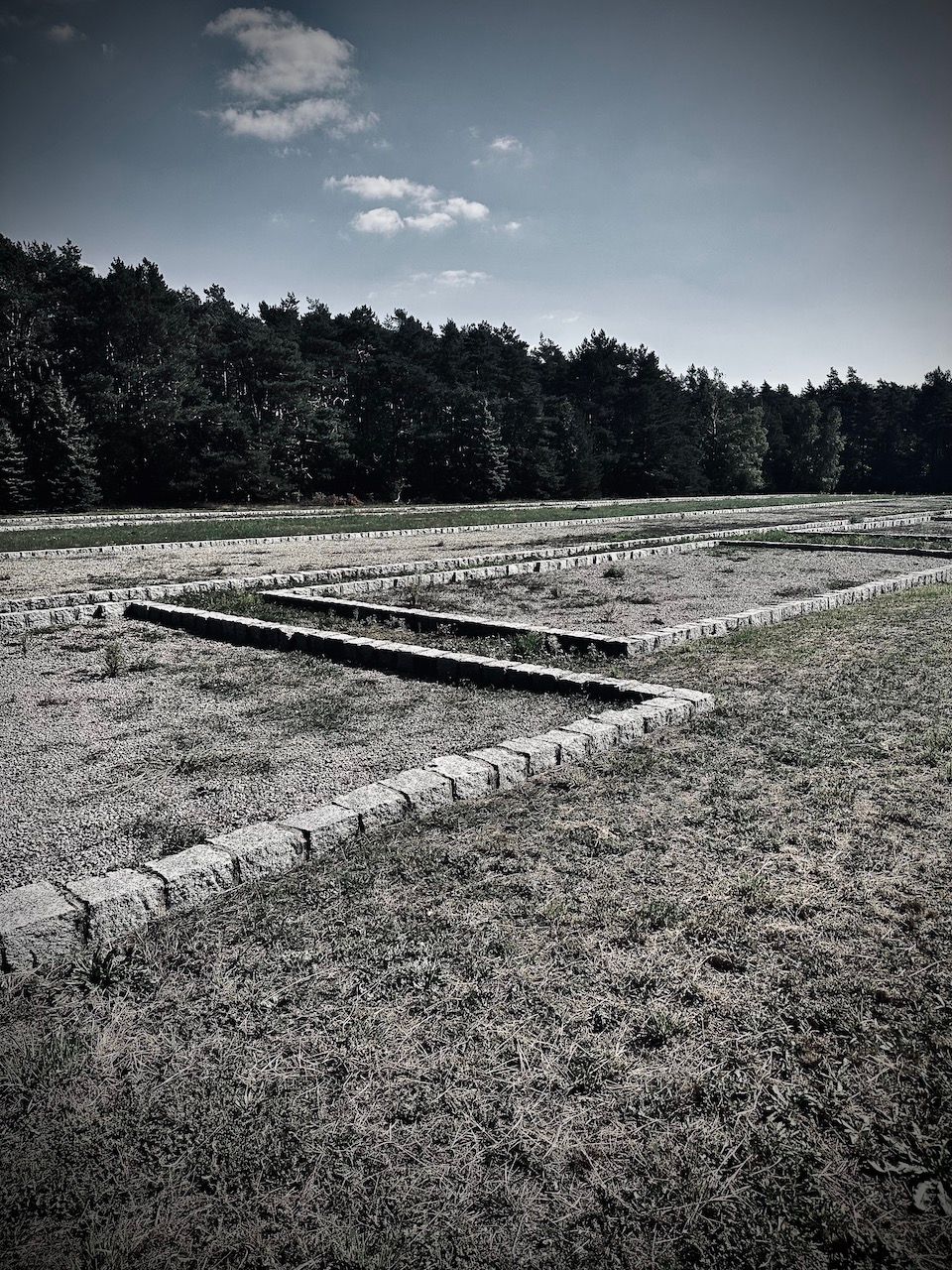
With my own eyes, I saw how my brother, Moszek Kolton and Zelig Szmuel (your brother-in-law), were brought here.
Moszek was stationed to work, temporarily, while Zelig Goldberg and Abram Moszek Kolton were taken from here and gassed to death.
This happened in August 1944. For the time being, we continue to work here.
Remember!
If you are among the living, revenge our brothers' revenge.
Every German you see - kill him.
I can do nothing, because of the I am chained by iron chains.
If I was asked to describe all, ten years would not have been sufficient.
A. Kolton
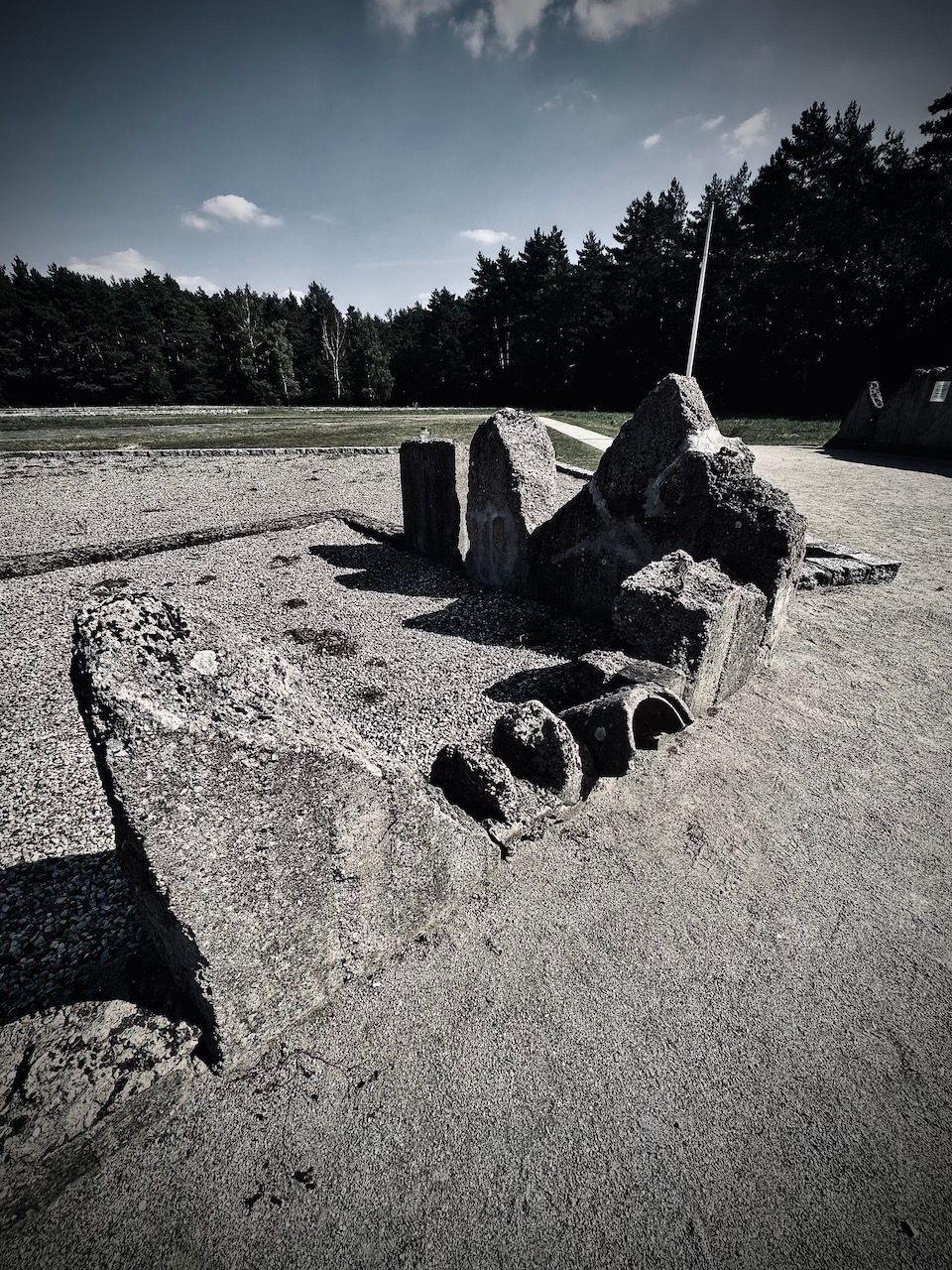
Naked Jews were forced to lie down and their faces facing the ground and each one of them was shot in his back.
When there were a few victims they buried them in the earth.
When they killed a larger group, they used to gather all the corpses, cover them in layer of wood and burn them.
Unknown
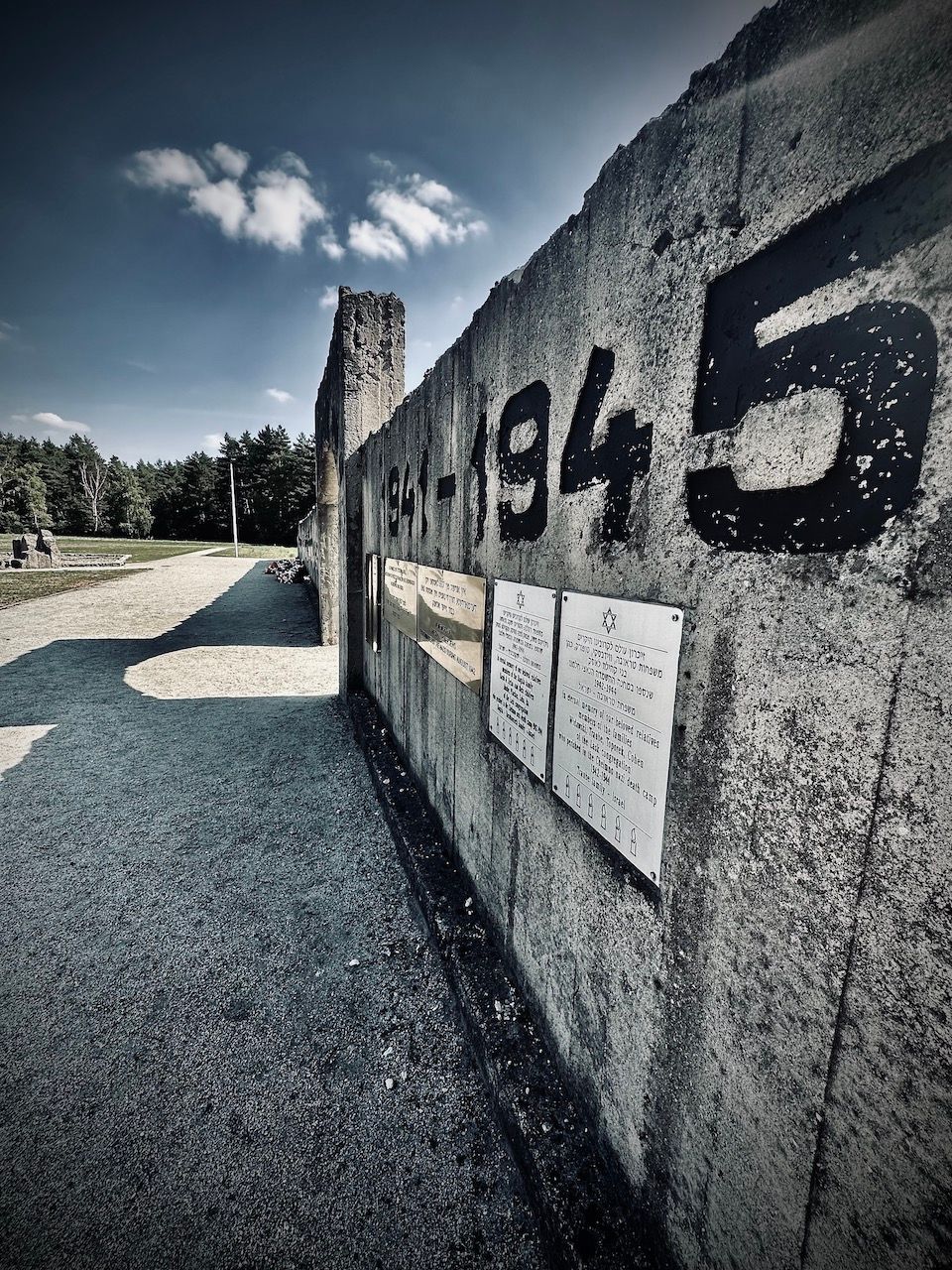
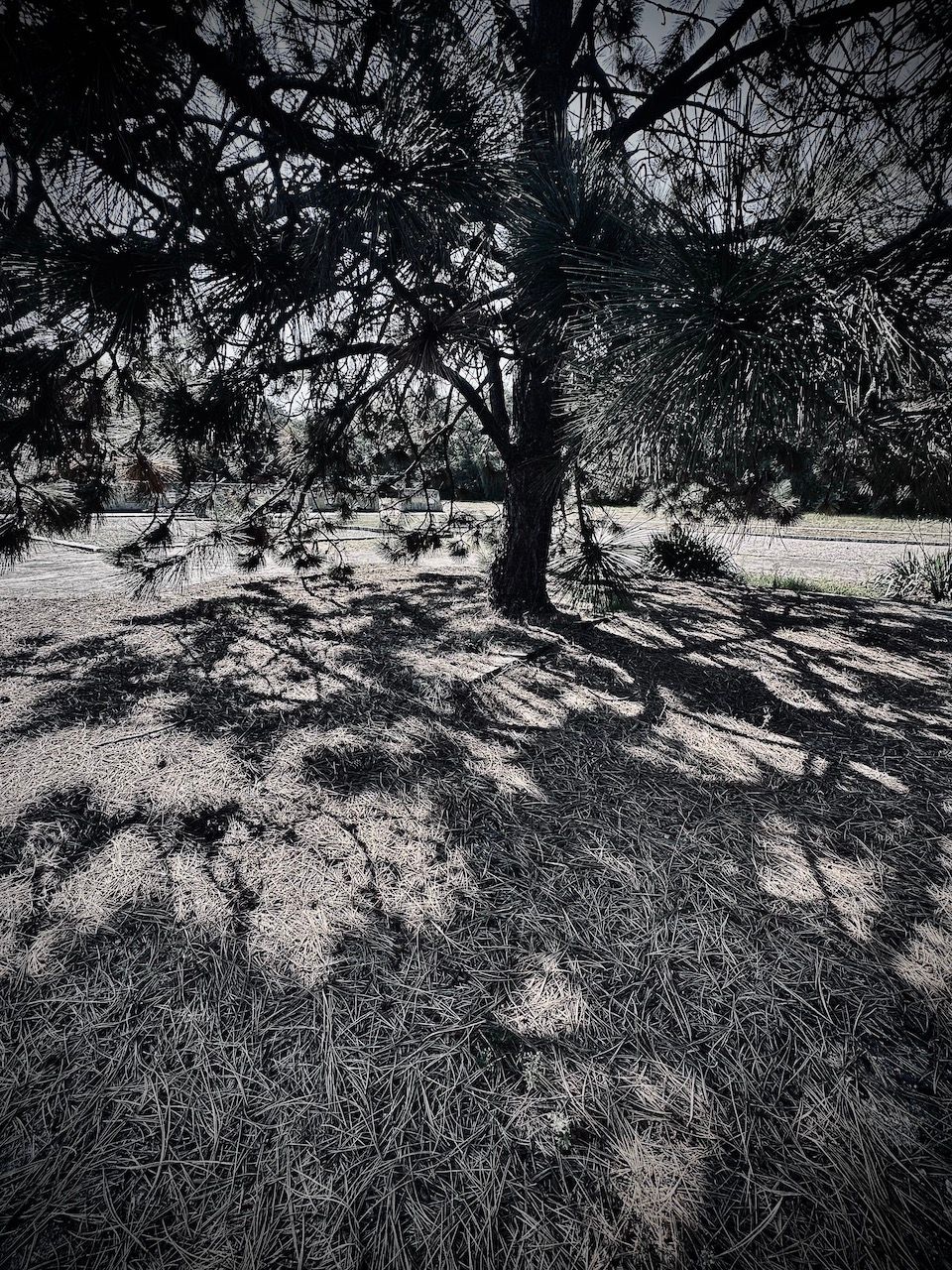
Rzuchow
On Escape.
When the Soviet Army was advancing quickly, one night we were ordered to leave the granary in groups of five... Lenz (SS Officer) ordered us to lie down on the ground.
He shot everybody in the back of the head.
I lost consciousness and regained it when there was no one around.
All the SS men were shooting inside the granary. I crawled to the car lighting the spot and broke both headlights.
Under the cover of darkness I managed to run away.
The wound was not deadly.
The bullet went through the neck and mouth and pierced my nose and then went out.
Szymon Srebrnik (Survivor)
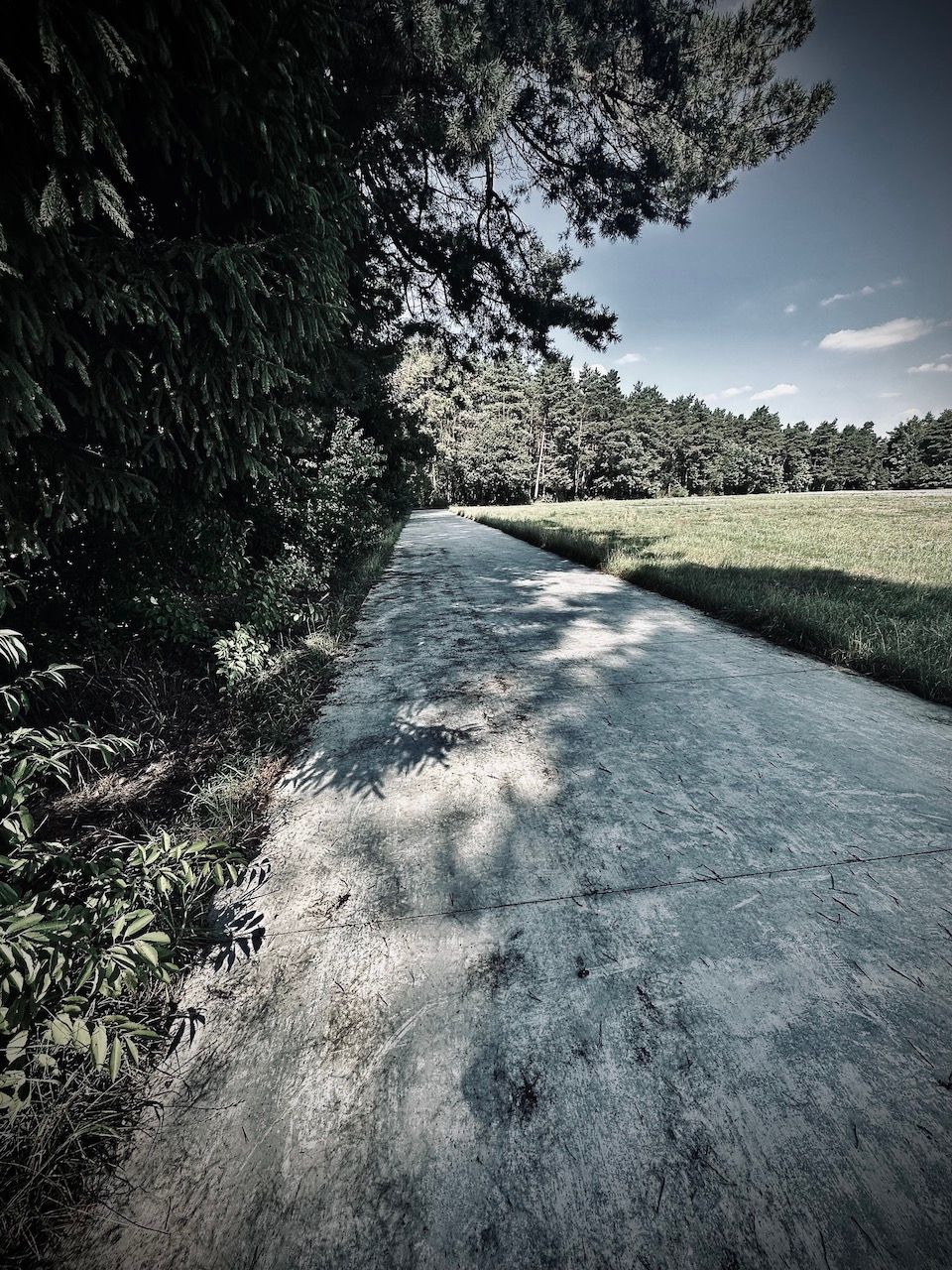
On Surviving.
On 17 January, at night, we heard trucks coming in, and two SS men came in.
Lenz came in. I recognised him.
He came in with a flashlight and took five men outside. When they led out the five men we heard five shots. Then they came in and again called five men outside.
This way, they led out three times five, that is fifteen men. Of those fifteen men, there is one who remained alive, Srebrnik, who was lying on top of the dead men.
When they were coming in for the fourth group of five I was standing with a knife behind the door, and I threw myself upon the SS men who came in.
I knocked out the light and swung with the knife right and left and escaped.
Mordechai Zurawski (Survivor)
If you liked that, try this:

